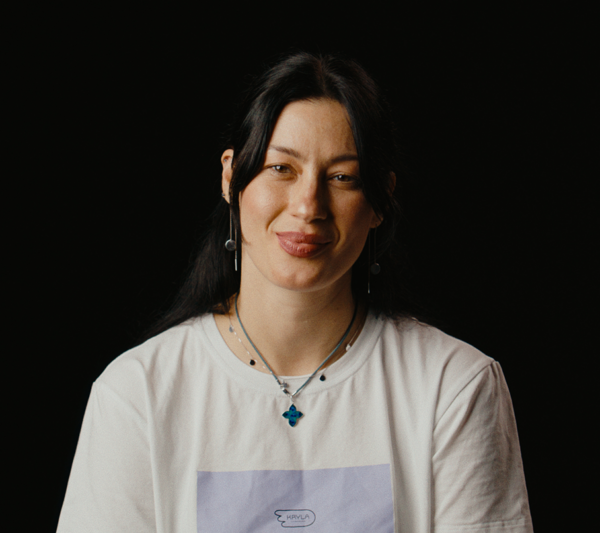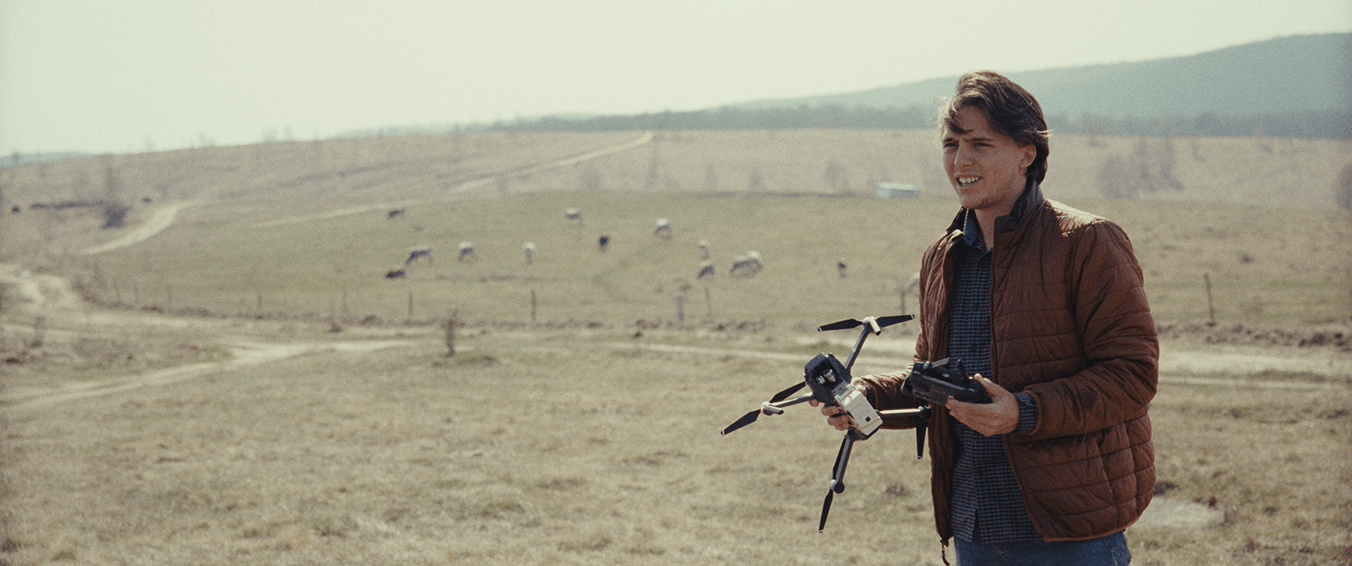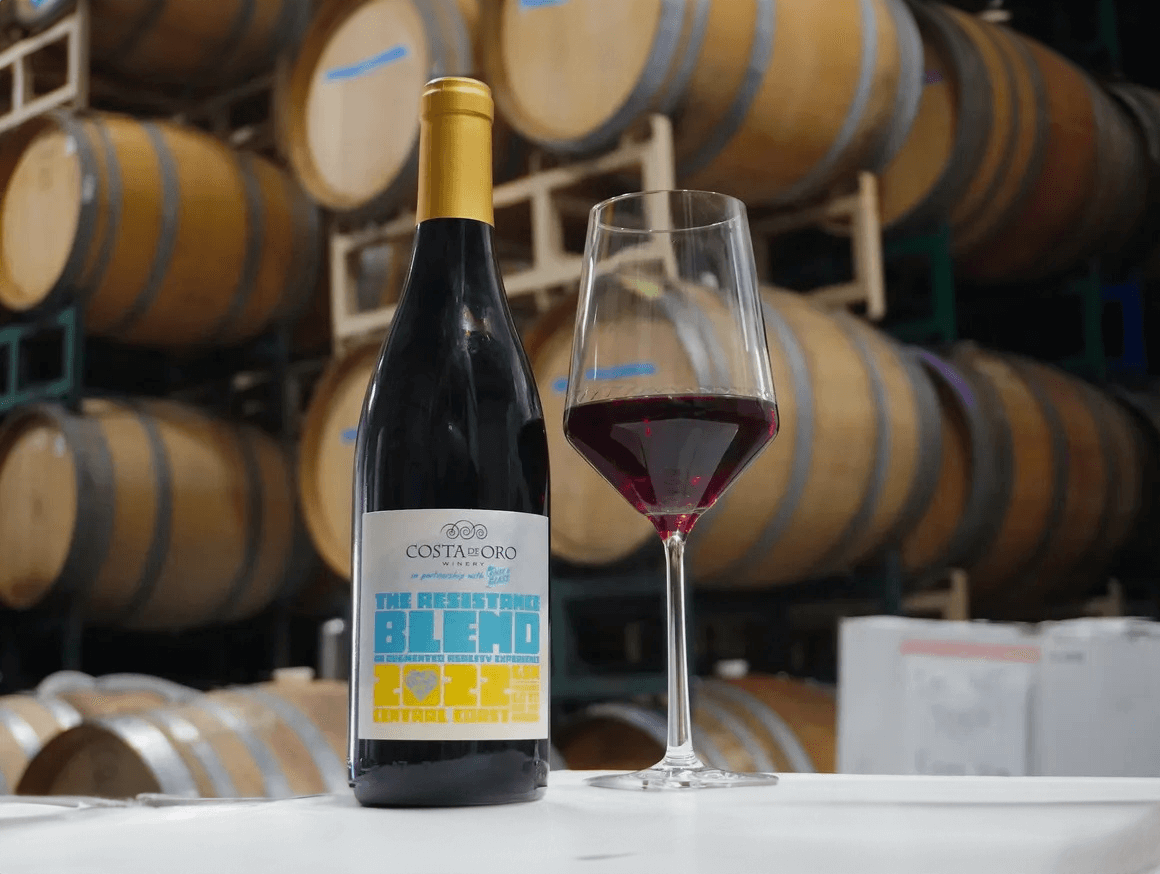Innovating for Impact: Student Innovators Respond to Ukrainian Crisis
A visibly distraught Oleksandra Knyha took a deep breath and began to speak.
While a glorious autumn sun shone outside, the atmosphere inside a dimly lit conference room in Cluj, Romania, was leaden with sorrow. Knyha, a 37-year-old fashion designer and mother of two, along with 16 other women from Ukraine, were sharing their experiences of life under Russian occupation with USC students taking a yearlong course called Innovation in Engineering Design for Global Crises, or Civil Engineering 486. The Trojans had come to Romania to find ways to help these and other Ukrainian victims of Russian aggression using what the program terms “character-driven innovation.”
Knyha’s nightmare began in early March 2022 when Russian forces occupied Kherson, her hometown northwest of Crimea. With bombs exploding around her, she spent several nights hiding in a basement. A Russian missile destroyed a nearby shopping center.
“We had no freedom,” said Knyha, who stayed in Kherson to care for her mother and siblings but sent her children to safety in Vienna with her former husband. “We could be tortured for supporting Ukraine, even for singing Ukrainian songs or expressing any type of nationalism.”
Alla Tikhova, the head safety engineer at the Zaporizhzhia Nuclear Power Plant, recounted the daunting challenge of trying to do her job while encircled by a contingent of 500 heavily armed Russian soldiers. Olesia Melnychenko, a soldier and POW, shared her harrowing tale of a seven-and-a-half-month Russian imprisonment, marked by the haunting sounds of fellow soldiers being tortured and executed.
During the testimonials, several of the students as well as speakers dissolved into tears. Afterward, many shared warm hugs. All of the women, their differing experiences notwithstanding, were united on one point: the need to keep their memories alive.
“Please, please, please tell our stories,” said Knyha, who has since founded the nonprofit KRYLA to aid traumatized Ukrainian children.
Her plea resonated with Mira Bhatt, a sophomore in the USC Marshall School of Business. She and three other students have since formed Ignite, whose goal is to develop an immersive exhibition featuring powerful testimonials by Ukrainian women highlighting their resilience and courage.
“Our whole mission is to ignite conversation, empathy and action,” Bhatt said. “We really want to get the conversation to support Ukraine going again.”

In Romania
Bhatt and 16 other students visited Romania between October 8 and October 15 as part of “Lives, Not Grades,” as CE 486 is commonly known. The class, spanning two semesters and transcending traditional academia, teaches students to identify and solve problems faced by those who are displaced or disadvantaged, combining engineering innovation, design, storytelling and entrepreneurship. Student teams also receive funding for customer discovery and product development. This year’s course, like last year’s, focused on the millions of Ukrainians who have suffered greatly since Russia’s unprovoked war began in February 2022. The USC group returned to Romania for a second visit in mid-March to test their solutions and cement partnerships.
“Students face a fear of failure and a need to harness their creativity and their ‘think I can’ mentality,” said instructor David Gerber, who has co-founded, advised or served as an executive at several technology startups since 2006. “Trying to innovate and impact people’s lives in a novel way in nine months is a tall task.”
Daniel Druhora, another instructor and an award-winning filmmaker with experience in humanitarian response, emphasized the need for rapid adaptation in crisis environments. “In these situations, individuals’ lives and needs can shift dramatically, often within hours,” he said. “It demands not only a deep understanding of the chaotic nature of global crises but also a rapid adaptation to people’s ever-evolving needs.”
The Russian invasion, Europe’s largest military attack since World War II, has displaced millions, with many Ukrainians seeking refuge in Romania. During their visit, the students gleaned important insights by meeting with Ukrainian refugees, World Bank advisers, executives from the United Nations High Commission for Refugees, or UNHCR, and Romanian university partners at Babes-Bolyai University (UBB) in Cluj in Transylvania and the Polyethnic University in Bucharest.
“The trip offered me perspective and firsthand accounts into the scope of the issues faced by refugees in the region. I was always personally invested, but the experience sharpened my focus,” said Mark Rayant, a USC alumnus and master’s student in USC Viterbi’s green technologies program. “We must act fast to maximize the reach of the goodness we intend to bring to the world.”
Rayant is also a member of Skyguard, whose ambitious project involves building an inexpensive sensor pack that attaches to drones and leverages machine learning to detect surface landmines.

Refining, sharpening and risk-taking
Like Rayant, Bhatt returned home inspired and ready to do something significant. She just wasn’t sure what.
Bhatt and her Ignite teammates considered three ideas: an inexpensive, non-electric heating system to keep people warm during the winter, especially with Russia targeting the country’s civilian energy infrastructure; strengthening windows to make them less likely to shatter during missile attacks; and a way to preserve the memories of Ukrainian women traumatized by the invasion.
For several weeks, the team evaluated their options. Bhatt said they opted against the heating system because they weren’t sure they could develop a unit that was better than existing ones. They liked the idea of making windows more shatterproof, but, in Bhatt’s words, “We don’t have missiles here to test them.”
They decided to pursue the third option. “We like this idea that we’re a team of women making content about women,” Bhatt said.
In entrepreneurship, however, an idea, even a great one, is little more than a seed. Without the proper tending, nurturing and care, it cannot take root.
Ignite has taken root. After receiving feedback from instructors Gerber, Druhora and Brad Cracchiola, an innovation expert, the group decided to pivot away from a virtual museum in favor of an immersive exhibit. They also opted to feature a single person instead of several women’s testimonials, choosing Anastasia Ponomareva, a former teacher from Mariupol who, like her students, suffered terribly under Russia’s brutal occupation of her hometown.
“Because we are all so passionate about this project, it is easy for us to get super wrapped up in our own ideas and convinced that we have something that will work,” said Blair Batson, a junior majoring in quantitative biology. “That’s why we absolutely look forward to the scrutiny and welcome any advice and constructive criticism.”
Next Steps

A team of film students worked on editing the video testimonial and building the physical installation, while others with expertise in digital interactive art handled the technical aspects of everything from coding the projection mapping technology and immersive lighting, to incorporating sounds and smells into the prototype and future shows.
“We worked and worked and worked,” Bhatt said. Under the guidance of UBB professors Oana Ivan, a renowned visual anthropologist, and Cristina Pop-Tiron, an award-winning interactive digital artist, the Romanian students became an integral part of Ignite’s design and production team, bringing a unique blend of skills and perspectives to the project.
“We formed a diverse team, combining skills, languages, cultures and time zones,” Ivan said. “This showed us that global collaboration and teamwork are possible.”
The culmination of Ignite’s journey was symbolized by meeting in person again in March with Ponomareva, who endured a taxing two-day journey by train and bus from Ukraine to Cluj to see the students.
It was in Cluj, amidst an atmosphere charged with anticipation and hope, that Ignite’s exhibit was unveiled.
A major milestone for the all the “Lives, Not Grades” students was the opportunity to share their ideas at a major pitch event in Cluj, a major startup hub in Eastern Europe. The event, held March 20, provided a platform for the students to present their innovative solutions to a diverse audience of innovators, entrepreneurs and industry experts.
The journey from concept to successful company is fraught with challenge. According to the U.S. Bureau of Labor Statistics, about 18% of small businesses fail within their first year, and this number increases to 50% over five years, with nearly two-thirds not surviving beyond a decade.
Still, the experience of trying to build a business in CE 486 is worth the effort, said Cracchiola, who has guided several startups at USC and is a global project manager for BMW Design Works. “Even if our teams fail, they have experienced the complete startup lifecycle,” he said. “This experience will be invaluable to many of them on their next attempt.”
‘Raise A Glass’ to Success
The startup, whose cofounders include two USC Viterbi students, just inked a deal to sell a special-edition wine that leverages augmented reality to raise awareness for Ukrainian resistance.
By Marc Ballon

Nicholas Conner was on a mission.
The chief executive of Raise A Glass, cofounded by five University of Southern California students, including two from USC Viterbi, spent an entire day in Santa Maria in northern Santa Barbara County driving from winery to winery in hopes of partnering with one of them. Conner and Olivia Glick, both recent MBA graduates of the USC Marshall School of Business, had received nine rejections that day when they rolled into Costa de Oro, their last scheduled visit.
Conner shared his team’s vision for Raise A Glass, which got its start in CE 486, the “Lives, Not Grades” class. Consumers buying a bottle of a special-edition wine could watch powerful augmented-reality stories of everyday Ukrainian heroes by scanning a QR code on a hangtag or the bottle’s label. The goal: to raise empathy and support for Ukraine.
Just a few months earlier, Conner and 22 of his CE 486 classmates had visited Romania to meet with Ukrainian refugees to discuss ways in which they might leverage engineering to help. After hearing several powerful testimonials, Conner was inspired to make a difference. “People need to hear these stories,” he said.
The owners of Costa de Oro liked what they heard. In October, the winery began selling a red blend for $40 a bottle with a customized blue and yellow label, the colors of Ukraine’s flag. Five percent of sales goes to two Ukrainian charities. Raise A Glass also plans to add other consumer products, such as cereal boxes and soda cans, and expand its global focus.
Conner credits “Lives, Not Grades” for giving Raise A Glass the academic, emotional and financial support to launch, including $5,000 for customer discovery and equipment. “They gave us the opportunity to build what we really believe in,” he said.
Website: Raiseaglass.co
IG/TikTok: @Raiseaglass.co




